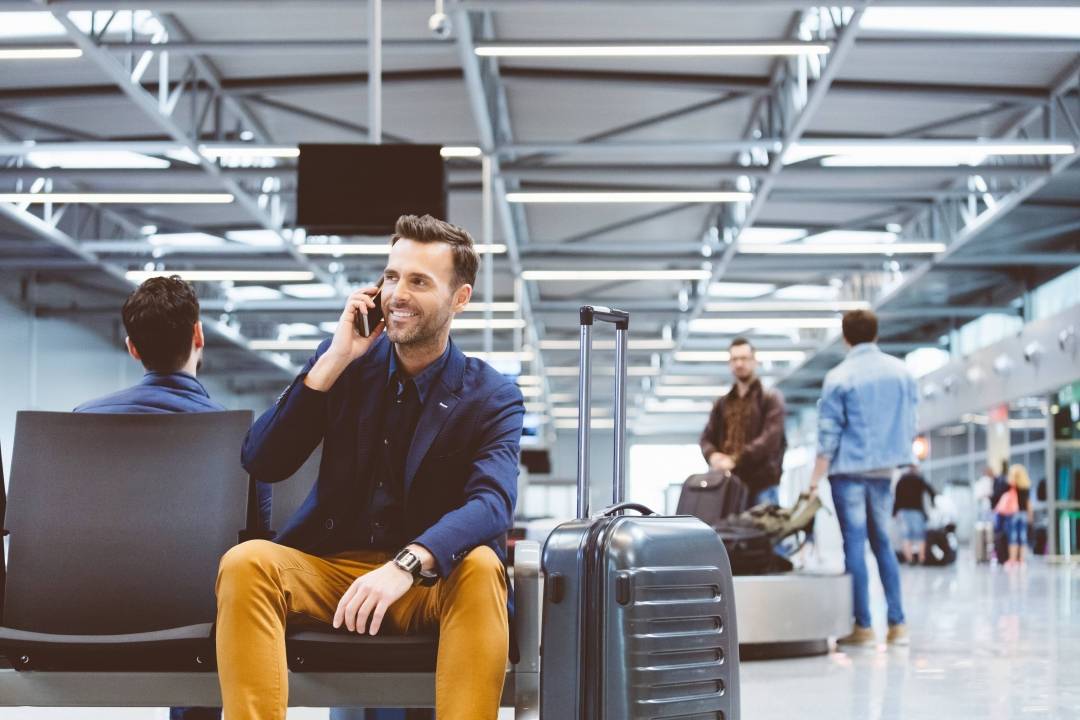Corporate travel during a crisis
Ensuring safe corporate travel starts with monitoring
Naturally, you wish to prevent travellers from encountering crisis situations. If you are wondering what you can do to prevent or minimalize risks, consider paying attention to the following topics:
- Draw up a Travel Risk Management strategy.
In a previous blog post, we described the components of a Travel Risk Management strategy. By drawing up a strategy, you always have clarity regarding procedures that must be followed when emergencies arise during corporate travel. - Follow the government’s travel advice.
The Dutch Ministry of Foreign Affairs has up-to-date travel advice for each country. The travel advice indicates whether areas are unsafe or not, whether travellers need to be vigilant or whether travelling to certain areas is discouraged. Follow this advice when organizing corporate travel. - Check your travel policy
Travel policies can include factors that influence the safety of the corporate travel. Consider, for example, where hotels are located, the use of taxi services or rental cars. Check regularly whether the policy is followed and instruct your Travel Management Company (TMC) to only book according to policy. - Prepare travellers for emergency situations
Training for personnel is an often-neglected area when trying to prevent risks during corporate travel. Are travellers aware of how to act during an emergency? Do they have an idea of the risks they face? Inform travellers about these points and ensure that they know how to act in a crisis situation.
Where are my travellers?
Consider the following hypothetical scenario: France is closing its borders immediately due to a huge increase in the number of COVID-19 patients. You know that there are 8 employees in Paris. How do you know that your travelers are safe? There are a number of systems to track travellers during a trip. An example would be the TravelTracker made by International SOS. Flight information, accommodation addresses and appointments can be used to provide a good estimate of where the traveller is located. Literally tracking a traveller's current location is also a possibility, by using GPS data, for example. However, this infringes on a traveller’s privacy and is therefore not a recommended course of action.
Part of an organization's Duty of Care is knowing roughly where a corporate traveller is, though the traveller has the right to be ‘off the grid’. It is in both the employer's and employee's interests to ensure that good agreements are made that walk the fine line between good employment practices and ensuring privacy.
Always keep each other informed
Let us return to the example of France closing their borders. To be sure that travellers are safe, a number of track and trace tools use notifications including those sent by SMS, phone or WhatsApp. Travellers who are in the affected city will receive a message regarding the emergency. They must then confirm that they are safe. Travellers will receive automatic notifications until they respond. Organizations such as International SOS help trace travellers who do not respond. Examples of this include contacting hospitals and maintaining contact with relief organizations. In such cases, you should also remember to inform the traveller's family members.
The travellers who have responded must be given regular updates, including how the emergency situation is developing and how this has an impact on the corporate travel. Maintaining good communications between the organization and travellers prevents confusion and enables quicker action.
Local support
It can be wise to seek local support, depending on the type of emergency. Examples of such support include colleagues who work at the local branch, the TMC's travel partners, medical support provided by organizations such as International SOS or supervision provided by the embassy or other government representatives. If the emergency is of such a scale that evacuation from the country is recommended, the Dutch authorities will assume responsibility for it.
We always recommend keeping a logbook that includes which steps are taken to evaluate and process the emergency.
Nobody plans to find themselves in an emergency or crisis situation during corporate travel. However, proper preparation for corporate travel prevents a number of problems. In the event of an emergency, a number of processes will be ready to start. Follow travellers, inform each other and enlist the help of external specialist organizations. Safe travels to everyone!




